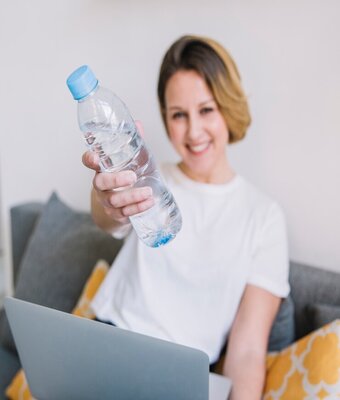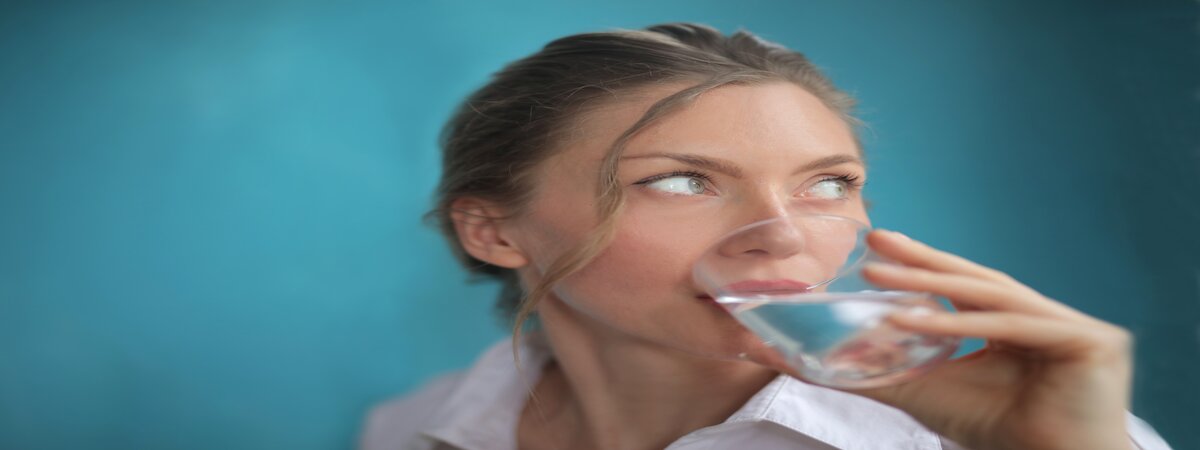
Does Water Help with Acne Improvement?
If you’ve ever heard someone say, “Just drink more water — it’ll clear your skin,” you might have wondered how true that really is. The short answer? Yes, water does help your skin, but maybe not in the way most people think.
Water is essential for life — it makes up around 60% of our bodies — and when you’re not drinking enough, your skin often shows it first. Dehydration doesn’t just make you feel tired; it can make your skin dull, tight, and more prone to breakouts.
Why Hydration Matters So Much
We sometimes underestimate what staying hydrated actually does for our body. It’s not just about quenching thirst — it’s about keeping every cell, including your skin cells, working properly.
Here’s how water quietly supports your health every single day:
-
It helps your blood carry oxygen efficiently.
Blood is about 80% water. When you’re hydrated, your cells get the oxygen they need to function and heal properly. -
It keeps your blood pressure stable.
Dehydration makes blood thicker, which can raise blood pressure and slow circulation — meaning your skin may get fewer nutrients. -
It supports your metabolism and appetite control.
Drinking enough water can help with gentle calorie control by keeping you full and supporting normal digestion. -
It helps your kidneys detoxify the body.
Kidneys need water to filter waste and excess minerals. When they’re functioning well, your body clears out toxins more effectively — and your skin often benefits, too.
How Water Affects Your Skin
Your skin is your body’s largest organ, and it reflects what’s happening inside. When you’re dehydrated, the skin barrier becomes weaker, pores can clog more easily, and inflammation worsens — all things that make acne harder to manage.
Hydration helps your skin in a few important ways:
-
Flushes out impurities.
Drinking water supports your body’s natural detox processes, which can help reduce the buildup of bacteria and oil that lead to breakouts. -
Keeps skin soft and resilient.
When the skin is hydrated, it can hold onto moisture better. That means fewer dry patches and less irritation that can trigger acne flare-ups. -
Supports healing and firmness.
Proper hydration encourages collagen and elastin production — both key for maintaining firmness and helping acne marks fade more smoothly over time.
Can Drinking Water Clear Acne?
Here’s the honest truth: water alone won’t cure acne. Acne is complex — it’s influenced by hormones, oil production, bacteria, and even genetics. But hydration plays a quiet, powerful supporting role in how your skin behaves.
Here’s what we see in practice:
-
Water helps your skin heal faster. When you’re hydrated, your skin can repair itself more efficiently after breakouts.
-
It helps control oil and bacteria. A balanced water intake supports normal oil production and helps flush out bacteria that can worsen acne.
-
It helps balance blood sugar. High blood sugar has been linked to acne flare-ups, and staying hydrated helps your body regulate it better.
So yes — drinking enough water won’t replace acne treatments, but it makes every other part of your skincare routine work more effectively.
What Really Works Best
For most patients, acne management is about consistency, not quick fixes. Hydration helps, but it’s part of a bigger picture — one that includes a gentle cleanser, non-comedogenic moisturizer, and, when needed, prescription treatments like retinoids or topical antibiotics.
If you’re struggling with breakouts that don’t seem to go away, don’t get discouraged. Sometimes the right plan just takes a bit of expert guidance and patience.
A Takeaway from a Dermatologist
Think of water as your skin’s quiet supporter — not the star of the show, but essential for everything else to work properly.
If you’re unsure whether your acne is linked to dehydration, or if you’ve tried everything and still can’t get your skin under control, we’re here to help. Our board-certified dermatologists in London can assess your skin, explain what’s really going on, and guide you toward the best acne treatment for your skin type.
💧 Not sure what your skin needs? Book a consultation today — sometimes, just understanding your skin better is the first step to clearer, calmer skin.
FAQ
Can I replace water with other beverages to achieve the same benefits for acne and overall health?
While other beverages can contribute to your overall hydration, water remains the best choice for maintaining skin health and aiding in acne management. Its purity and absence of additives make it an ideal choice. However, incorporating herbal teas and infused water can also be beneficial.
How much water should I drink daily to see improvements in my acne?
The recommended daily water intake varies, but a general guideline is to aim for at least 8 glasses (64 ounces) of water a day. However, individual needs may differ, so it’s essential to listen to your body and adjust accordingly.
Are there any side effects of drinking too much water for acne management?
While rare, excessive water intake can lead to a condition called water intoxication or hyponatremia, which disrupts the body’s electrolyte balance. It’s crucial to strike a balance and not overhydrate excessively. Stick to a moderate and healthy water intake to avoid any potential issues.


